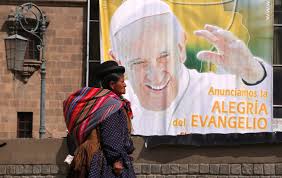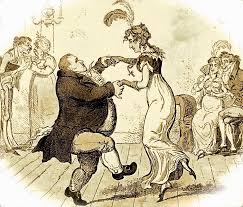
A Comeback for Religion?
Every once in a while, you hear or read something completely unexpected.
That was the case recently when I read in America Magazine a story about a resident of Paris saying that much to his surprise, Catholic churches in France – among the most secular societies on earth – are filling up again.
At first, Pascal-Emmanuel Gobry thought it was a phenomenon at the parish he attended, where if he was less than five minutes early for Mass he often found himself having to “step over people sitting on the floor” on his way to an overflow room.
But, he writes, Mass “is packed in most parishes in Paris. This is also true in Lyon, the second biggest city in the country.” This is “in a nation where 53 percent of citizens (according to past polls) identify as Catholic but only five percent regularly attend Mass.”
Of course, his “packed-church observation is anecdotal. Gobry cites no studies and couples this perception with the increase in the number of religious people, specifically Catholics, who are taking a renewed interest in French politics – trying to create a society that is more in line with traditional Christian teachings.
Some of them are aligning with right-wing politicians, who among other things, want to discriminate against and bar immigrants – hardly a Christian teaching. Others, however, say that “care for the environment, care for the poor and care for the unborn go together.”
Throwaway Culture
“Pope Francis’ warnings about a ‘throwaway culture’ that leads both to abortions and to quasi-slaves in third world factories making disposable consumer items of questionable worth are tailor-made for them,” Gobry says.
Before going any further, just what are “traditional Christian teachings” when it comes to how people searching for God should act? There’s no better summary than in the Apostle Paul’s Letter to the Galatians in which the author writes about “the fruits of the Spirit.”
They are “love, joy, peace, patience, kindness, goodness, faithfulness, gentleness, self-control.” It appears the author of Galatians is saying that not only should we strive to practice these “fruits of the Spirit,” but that we can test ourselves about our sincerity by examining whether we practice them.
Of course, people can practice these “fruits” without filling up churches, just as people can stay in shape without filling up gyms. But most humans need the community, support and solidarity with other believers that church provides.
A recent article on the National Public Radio home page, called “Why Religion is More Durable Than We Thought….” is, I believe, a bit patronizing to believers, but it provides an interesting insight into why human beings need religion.
Sociologists, says the article, have a theory called the “secularization thesis,” which holds that “as societies become more modern, religion loses its grip.” At the outset, I can see a problem here regarding the word, “modern.”
The term is relative. A 1967 musical, “Thoroughly Modern Millie,” was set in the 1910s and 20s when people thought they were at the height of “modernism.”
Anyway, as people become more “modern,” the article suggests, they don’t accept the explanations for the natural world they read in the Bible. I would say that for the most part, these explanations result from our misunderstanding of the Bible’s purpose, which is not to explain the natural world.
Although church attendance has declined and the number who list “none” on surveys asking about religious affiliation has increased, more than 70 percent of Americans identify as Christian. And religious people put their money where the faith is. In 2012, the most charitable deductions on US income-tax returns, $102 billion, went to religious groups.
And what may be surprising for some, religious practice doesn’t necessarily decrease with more education.
Just as Religious
“Highly educated [Christian] adherents are just as religious, in some cases more religious, than their fellow members who have might have less education,” the article says. “…Regardless of their educational attainment, these Christians find meaning in their church experience.”
So what does religion do for people searching for God?
“It provides community,” says the article. “It provides them with friends. It provides them with psychological support and economic support. It provides a lot more than simply an understanding of where they are in the world in relation to the afterlife.”
It is, in my view, the obvious – though not exclusive – way to find God.




